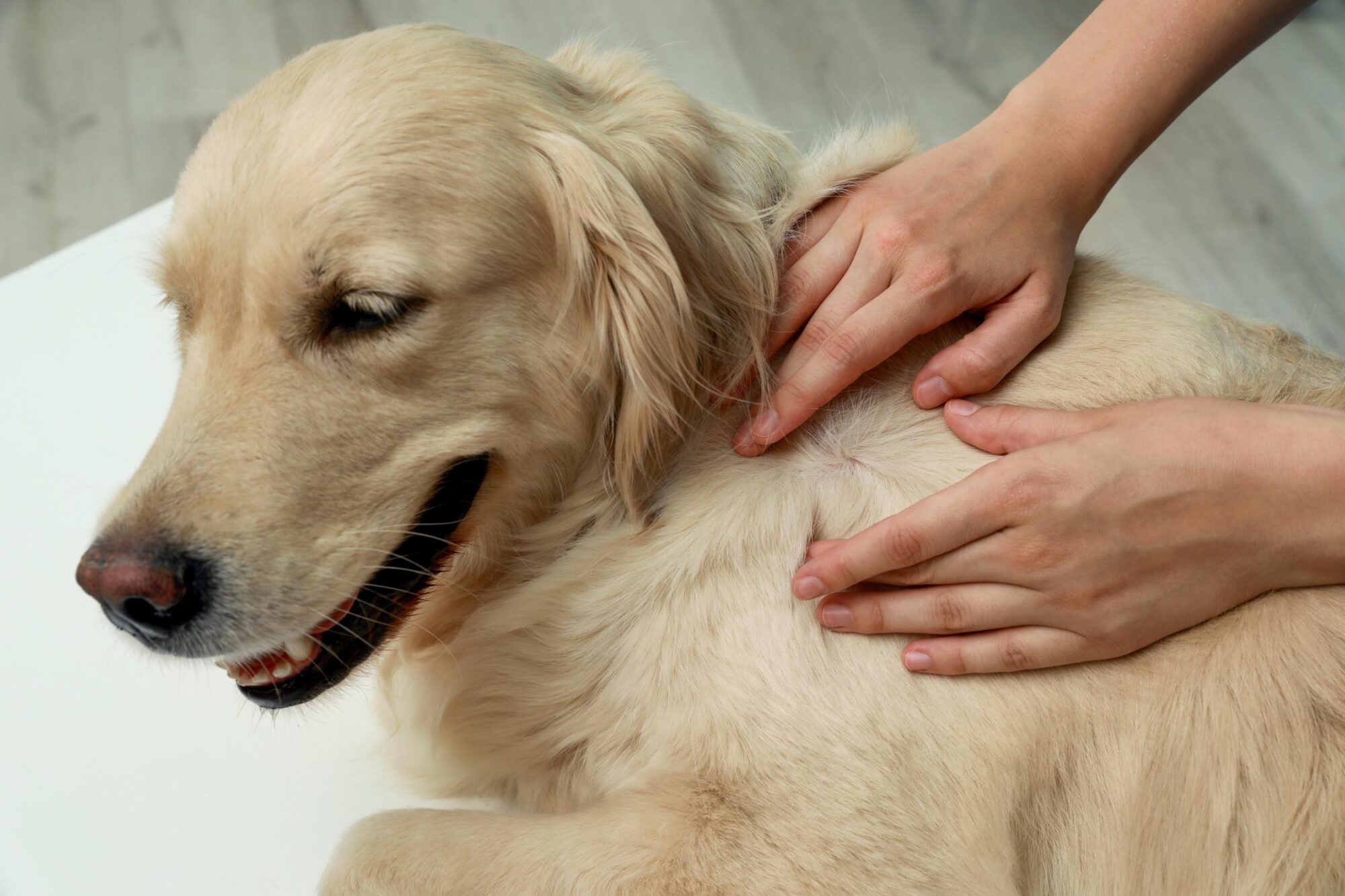What Are the Top 5 Skin Issues Pets Face in the Summer?

If you’ve got an ear-twitching canine or a leg-flicking feline, a skin condition is likely to blame. Skin problems in pets often peak in summer due to several environmental factors. The increased heat and humidity creates the perfect breeding ground for bacteria and fungi. Plus, pets spend more time outdoors, which can expose them to allergens like pollen, grasses, and insects that can irritate their skin.
An itchy dog in summer should be taken seriously, since all that scratching can quickly cause infections. Keep reading for a helpful primer on summer skin problems in pets so you know when to call the vet.
Summer Skin Problems in Pets: The Top 5
Heat, humidity, and summer pests create a combination that can lead to these five summer skin problems in pets:
- Pet Hot Spots: These wet, inflamed areas of the skin can result from allergies, insect bites, or excessive licking and scratching. Pet hot spots can rapidly become infected and cause significant discomfort.
- Allergies: Pets can develop allergies to pollen, grasses, and other environmental factors, leading to itching, redness, and swelling.
- Flea Infestations: Fleas thrive in warm weather, and can quickly infest your pet’s coat. Flea bites cause intense itching and can lead to dermatitis or other skin infections.
- Sunburn: Pets with light-colored or thin fur are especially susceptible to sunburn. Sunburn can cause redness, hair loss, and even blistering on the skin.
- Dry Skin: Exposure to the sun, swimming in chlorinated pools, or dehydration can lead to dry, flaky skin in pets, and cause discomfort and itching.
Protecting Your Pets from Skin Problems
These proactive tactics can help protect your pet’s skin during summer:
- Brush your pet’s coat regularly to remove loose fur, dirt, and parasites.
- Use veterinarian-recommended flea and tick preventives.
- Bathe your pet with a gentle, pet-friendly shampoo to clean their skin and remove allergens.
- For pets with light or thin fur, apply a pet-safe sunscreen to exposed areas of their skin before going outdoors.
- Ensure your pet has access to fresh water at all times.
- Keep your pet in a cool, shaded environment to prevent overheating and sunburn.
When to Call the Vet
While some summer skin problems in pets can be managed at home, certain conditions require veterinary attention. Here are some scenarios when you should call your vet:
- Persistent symptoms that last for more than a few days or worsen despite home care
- Severe itching, pain, or discomfort
- Signs of infection, including redness, swelling, pus, or an unpleasant odor
- Extensive hair loss or bald spots
- Visible parasites such as fleas or ticks
By staying vigilant and taking preventive measures, you can help ensure your pet enjoys a healthy, itch-free summer. Contact our team at Coal Creek Animal Hospital
if you have concerns about your pet’s skin.
